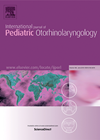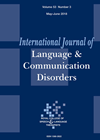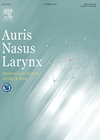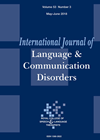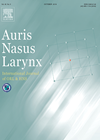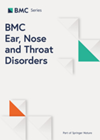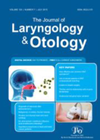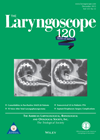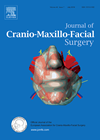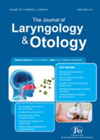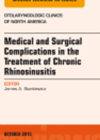
Journal Reviews
Antiseptics to combat otorrhea in the era of antibiotic resistance
This nice scientific paper pits various antiseptic solutions against each other to determine which has the most bactericidal properties. Five different antiseptics were applied to MRSA and quinolone-resistant pseudomonas species, which are both difficult to treat with conventional ototoxic medications....
Literacy and communication skills of young offenders
This article elucidates the perceptions and experiences of young offenders about their own literacy and communication skills. Young offenders (YOs) are usually between the age of 14 and 16. It is estimated that more than 60% of these offenders have...
Impaired music perception in children with specific language impairment
This study compares musical skills of children with typical language development with those of children with specific language impairment. Both groups received a test consisting of a melody and a song identification along with a test battery to assess receptive...
Robot controlled mastoid surgery!
This is a fascinating piece of work by a Korean team developing a human-robot collaborative control. Their model uses image guidance surgery to locate the drill tip’s position. Important structures can be highlighted – in this case the facial nerve....
Working with clients of communication disorders from culturally and linguistically diverse populations
Speech language therapists (SLTs) deliver evidence based services worldwide for communication disorders to culturally and linguistically diverse (CLD) populations. They have to modify their approaches and tailor them to the needs of their students / patients. This article studies the...
Prognostic factors for myringoplasty
This retrospective study looked at the factors that were associated with a higher success rate for tympanic membrane perforation closure. The authors looked at 247 procedures. They compared the results of temporalis fascia versus tragal cartilage. The cartilage grafts had...
Assessment of the incidence of LPR in the Greek population using the Reflux Symptom Index
Using the self-administered nine-item Belafsky Reflux Symptom Index (RSI) questionnaire, the authors of this article assessed the prevalence of laryngopharyngeal reflux (LPR) in the general adult Greek population as well as predisposing and associated factors for developing LPR. They found...
Influence of atmospheric conditions on post tonsillectomy secondary haemorrhage
Haemostasis in epistaxis and a good few other conditions outside the field of otolaryngology seem to be affected by the weather. It is generally thought that dry and hot environment encourages secondary post tonsillectomy haemorrhage. Variations in water vapour pressure,...
Surgical voice restoration after laryngopharyngectomy
Voice restoration is one of the key rehabilitative steps after laryngectomy or total laryngopharyngectomy (TLP). Patients who undergo TLP require reconstruction – increasingly commonly with microvascular free flaps. Despite their advantages in terms of fistula rates and swallowing outcomes, these...
An overview of microsurgical reconstruction of the head and neck worldwide
Microsurgical reconstruction is an integral part of the treatment following ablation for malignancy or trauma. Currently there are no clear treatment guidelines following tumour resection. This was recognised a few years ago and in 2008 various collaborative groups were founded...
Are upper respiratory symptoms and macroscopic changes in children always due to gastro-oesphageal reflux?
In children, symptoms such as chronic cough, wheezing, stridor, voice changes, persistent asthma and dental erosion are often presumed to be due to gastro-oesophageal reflux and empirical treatment with PPIs is offered. Usual investigations, such as a barium meal, gastroscopy...
Do I need Google maps in here?
Image guidance surgery (IGS) has grown in popularity. This review article discusses its application in endoscopic sinus surgery (ESS). IGS technology has vastly improved with smaller, more mobile platforms that are easy to set up and use. IGS allows validation...

